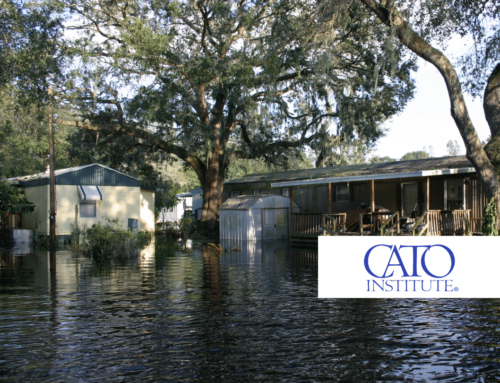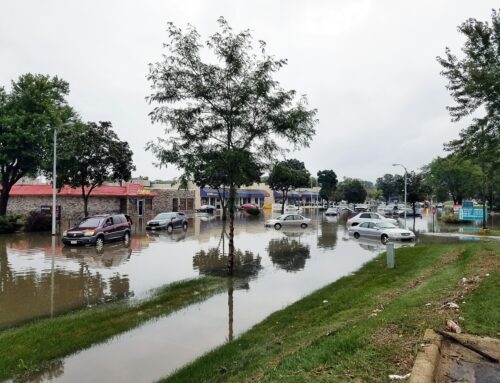The nation’s transportation system — highways, transit lines, aviation, waterways, and ports — is largely supported by a series of dedicated trust funds for each respective mode of transportation. Similar to how payroll taxes provide a dedicated revenue stream into the nation’s Social Security Trust Fund, the nation’s transportation trust funds are primarily supported by dedicated taxes based on the user fee model; for example, the more an individual drives, the more federal fuel taxes the driver pays into the Federal Highway Trust Fund. Congress then appropriates trust fund revenues to various mode-specific transportation programs and projects. The four primary transportation trust funds are the Federal Highway Trust Fund (supporting both the nation’s highway and transit systems), the Airport and Airway Trust Fund, the Inland Waterways Trust Fund, and the Harbor Maintenance Trust Fund.
Each of these trust funds suffer from a variety of structural and budgetary problems that undermine the fiscal sustainability required to support the nation’s transportation system. Furthermore, Congress has repeatedly failed to address these problems as they have become worse in recent years, creating a transportation system characterized by increasing congestion, poor project selection and prioritization, and deficit spending. For instance, the Federal Highway Trust Fund has required over $30 billion in general revenue bailouts in recent years to keep it from becoming insolvent. Meanwhile, the Inland Waterways Trust Fund provides millions of taxpayer dollars for projects propping up the corporate barge industry, but traffic on these waterways is stagnant or declining and the fund is effectively bankruptcy. Each of the trust funds considered here face significant challenges.
A full report for each trust fund is provided by selecting the following links:
Summaries:
Proceeds from federal fuel taxes and a variety of other fees go into the federal Highway Trust Fund (HTF) — the primary funding mechanism for the nation’s surface transportation system. The HTF provides support for a variety of highway and transit programs, including formula-based state grants and specific projects and programs as directed by Congress. The HTF currently faces a myriad of problems including insufficient revenues relative to current spending levels, a revenue stream with declining relative value, a lack of spending prioritization for the most beneficial projects, and looming insolvency in the fund’s immediate future.
The Airport and Airway Trust Fund
The Airport and Airway Trust Fund (AATF) collects various fees and taxes related to the use of the aviation network such as ticket and jet fuel taxes. The AATF provides ongoing support to a variety of projects, from air traffic control systems to airport and runway expansion. The number of air passengers is predicted to increase by one-third by 2030 and modernization is needed to replace 1950’s radar technology; ongoing trust fund support will prove even more crucial over the next two decades. Of concern, however, is that spending from the AATF has exceeded revenues by a total of $9 billion dollars over the last 11 years. Furthermore, poor revenue forecasting and wasteful aviation programs continue to chip away at the AATF’s dwindling balance.
The Inland Waterways Trust Fund
The nation’s inland waterways system stands as one the most heavily subsidized forms of transportation, even though it carries less than 5 percent of the nation’s cargo. Over 90 percent of the system’s costs are borne by taxpayers. Furthermore, the Inland Waterways Trust Fund that pays for construction and major rehabilitation on these waterways is insufficient, stemming from a lack of sustainable user revenues, an absence of project prioritization, and overspending. Rather than fixing these structural problems, barge industry advocates are seeking to gut their cost sharing responsibilities and shift more costs for building and maintaining inland waterways onto taxpayers.
The Harbor Maintenance Trust Fund
Many of the nation’s ports and related waterways require ongoing dredging and upkeep to maintain navigation viability. Funding for these activities is appropriated by Congress to the U.S. Army Corps of Engineers from the Harbor Maintenance Trust Fund. The fund is supported by a Harbor Maintenance Tax levied on the value of imported waterborne cargo and cruise ship passengers. The current funding system perpetuates significant cross subsidies from revenue generating ports to ports with a smaller share of the nation’s maritime traffic. Additionally, there is significant pressure from ports and members of Congress to spend down trust fund revenues for additional dredging and maintenance activity, even where it may not be appropriate. Before spending down the trust fund, Congress must engage in a regional and national port planning process to determine which ports can best meet national interests.











Get Social